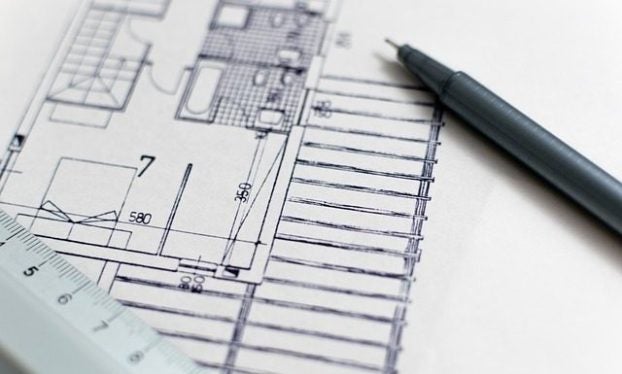Bill Nets Little For PE Roads
Published 4:20 pm Tuesday, March 5, 2013
PRINCE EDWARD-The General Assembly has closed the books on yet another session only this time-after years of talking about transportation issues, legislators have approved a game-changing plan that now goes to the Governor to be signed.
The proposal would mean $880 million more money annually for transportation by 2018 (according to the Virginia Association of Counties).
The governor is expected to sign it into law.
Will it be good or bad for rural localities? Time will, obviously, tell.
“I spent a tremendous amount of time reviewing this bill and looking at the implications of it and, you know, (the) easy vote would have been to vote no and you know that it would have still passed and I go home and…have done nothing to address the problem,” Delegate James Edmunds told The Herald last Wednesday.
“As a result of this plan, thousands of construction and maintenance projects around the state will be funded, from widening I-64 between Newport News and Williamsburg, widening Route 28 in Northern Virginia, bringing down tolls on the Dulles Toll Road and advancing the Silver Line, bringing Amtrak service to Roanoke, and helping to build the Coalfields Expressway in Southwest Virginia,” an email from Governor Bob McDonnell detailed following General Assembly's action. “Thousands of new jobs will be created. Before this vote it was projected that by the year 2018 we would have been transferring $500 million meant for construction to just fund simple maintenance projects. There would have been virtually no new money available for new construction projects. Now, this problem has been solved for the foreseeable future.”
While the haze of the just-approved piece of legislation still hovers like a dense morning fog, there appears to be little help for new rural highway projects.
“We've had a lot of discussion with a lot of people and the bottom line is that what we have been told is that everything that we saw was just examples-that actual projects to be done have not been decided upon,” County Administrator Wade Bartlett reported last week. “So we don't know what that means for Prince Edward. And that may not happen for awhile.”
The Governor's project list linked by the email following General Assembly action includes the Twin Bridges project on Route 623 (estimated to cost $4,022,321); the replacement of a bridge and approaches on Lockett Road (619) at Sailor's Creek (estimated at $1,206,561); and there's about $204,000 for unpaved roads.
While highway money and priorities can change (and the dust was still settling on General Assembly action), the two construction projects were already in the works, with most of that funding already in place. VDOT had planned to advertise the Lockett Road project at the end of 2015; the Twin Bridges project was scheduled for advertisement in January. VDOT reported that the remaining portion of the Twin Bridges project was over $400,000; the balance of the Lockett Road project nearly $600,000. VDOT was scheduled to finance the project balances and they would have been able to move forward.
“…Everything that we had seen earlier on the governor's list-everything on there has already been on our list of things to do and funded,” Bartlett told The Herald. “There was nothing new. The only thing new we saw dealt with unpaved roads and when we delved into that, our response was 'Oh, that's not real. That was just an example.'”
The amounts listed in the governor's plan, would make them fully funded.
A spokesperson for VDOT was unsure whether the proposal would move the projects forward in the planning, noting that would all have to be evaluated.
“…The bottom line is we've got to wait and see what will happen on this and we just don't know at the moment, but I don't really see any additional money for roads-definitely nothing for construction,” Bartlett said. “As we know, if you look at it by traffic counts, we're just not gonna be able to compete with some of our more densely populated regions of the state.”
Still, Edmunds sees some positives. While he concedes he may be wrong, he assesses that the bill may have been a good one for rural Virginia in that it does drop the gas tax a net of about seven cents.
According to a legislative update from VACo, the legislative plan replaces the 17.5 cent per gallon of gas tax with a 3.5 percent wholesale tax paid by distributors and a six percent wholesale tax on diesel; increases the current five percent retail sales and use tax for non-food purchases to 5.3 percent with the increase funding transportation; sets a $100 registration fee for hybrid vehicles, increases the motor vehicle titling tax over four years from three to four percent; increases the general fund money for transportation from .50 to .675 percent over four years; and sets an additional .125 percent of the existing sales tax for education.
“…Basically, you know, given that nothing has been done on transportation-or at least no funding source, no steady funding source has been identified and really nothing's been done since 25 years ago, probably, we could have…kicked the can down the road again and done nothing but I just don't think that's what the citizens want us to do,” Edmunds said.
The delegate concedes there are certain aspects of the bill he hates, but added that he doesn't want to kill the bill because there are one or two parts of it that he doesn't like. In the long run it's transportation and public safety-which he offered go hand in hand-is the core function of government.
“You can do nothing. Nobody else had a better idea-and trust me, there were a lot of ideas thrown around-and so short of doing nothing again, I think this probably…was the best solution for the state. And, for rural Virginia that I represent, I think it's really-the impact will be…not nearly as burdensome as those now.”
As for Northern Virginia, Edmunds assesses that they will fare differently, offering that the citizens there are going to “get hit big time,” adding that if he had lived up there “I probably wouldn't have voted for it because it's (going to) be a serious tax consequence for those guys. But that's where the problem is, too…”
The bill (the VACo's legislative update cites) outlines a local increase in sales tax of an additional .7 percent; increases wholesale tax an additional 2.1 percent, increases the transient occupancy tax three percent; and an additional 25 cents per $1,000 for the grantors tax. Seventy percent of the total additional revenue raised in northern Virginia would go to the region with a priority for transportation and mass transit projects; the 30 percent balance would be given directly to localities on a pro rata basis for transportation.
Edmunds said he does not think that the average person, until they go and purchase perhaps a new vehicle, is going to see a significant out of pocket expense over this. Theoretically, he suggested, they could save money.
A family that drives 25,000 miles a year on average and earns $40,000 a year average, he assessed, would see about a $30 decrease in the tax they would have to pay (including the previous fuel tax).
As far as funding for projects, Edmunds said he doesn't see much coming back proportionally, “But what I do like about the plan is that it still is based on road miles instead of population …which means that as needs come up there should be funding there to fund different…maintenance projects that weren't funded before 'cause all that maintenance money was going to Northern Virginia…And that was a big deal.”
There was an effort underway, Edmunds cites, to base it on population and so all of the money would have gone to areas that are congested, leaving the rural areas that have the most miles of road “hung out to dry.” For rural Virginia, he offered that he really does believe it's a good bill otherwise he wouldn't have voted for it.
“Oh, absolutely,” Edmunds says, when asked about it being a real possibility the formula would have changed this year. “Absolutely. The only reason it didn't was because of…some relationships that some of the urban guys had with a few of our rural guys because they can out-vote us now. When urban Virginia wants to out-vote rural Virginia they can do that after last year's redistricting.”
A bill that would have given three more urban seats on the transportation board and one more rural representative failed, Edmunds points out “only out of courtesy to…a few of us rural guys.”
The first time rural Virginia doesn't want to play any more and assumes the role of the head stuck in the sand, Edmunds offers, “you're gonna see urban Virginia saying, 'well, we tried to take you with us, you didn't want to have anything to do with us so now we're just gonna run the train without you.' And they can do that.”
Relationship building, he asserted, is paramount.
Still, for rural localities-like all areas of the state that have road needs-it doesn't look like there will be more in additional projects.





